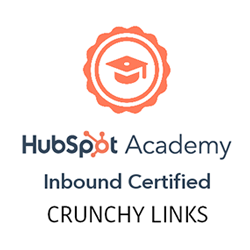SEO’s a crazy alchemical world full of fairies, dragons, trolls, and even experts who can guide you on your journey. Problem is, they also sometimes send you off to Mordor with a world-ending ring and, if you’re lucky, a buddy to go through hell with you.
At worst, it’s Gandalf saying “Fly, you fools!” before falling off a cliff.
So, if your CEO or CMO just said “Congrats! You’re now in charge of SEO, go do it.” then this is the page for you.
The gist of what you have to know

The whole goal of search engine optimization is to get people what they want. A great example is Homer Simpson – obsessed with donuts – who would use search engines to find the nearest donut shop. And if you so happened to have a donut shop, you’d definitely want a customer like Homer.
So what do you have to do leverage SEO to get your donut shop in front of Homer? Great question. Here, SEO can be broken down into four basic components:
Access: This is all the stuff you need to do to make sure the search engines can get to all the parts of your website you want them looking at.
Indexing: Once search engines get to your content, you want them to be able to read it properly.
Authority: Once the search engines can read your website and webpages, you want to create authoritative content. That means using the same phrases your target customers use and giving them the best experience, and information, possible.
Popularity: Share your authoritative content with influencers, experts, and others in your niche. If they like it, they’ll provide a backlink to your website when they share, quote, or talk about your content. Search engines use these backlinks as a ranking factor – meaning they’ll look at how many quality websites are linking back to you. So the more popular your website, the higher the chance it has to rank well.

I’m taking over SEO and I don’t know where to start.
Here’s what I always do when starting out: run an audit. Most people use screaming frog for this, but as a beginner, I’d either use deepcrawl or sitebulb. Both visualize your website and highlight errors in an easy-to-understand way.
Ok cool, but wtf is an audit? Help me out here!
An SEO audit is something that you should at least run quarterly, meaning every 3 months. It’ll give you the overall look at how your website is performing in SEO, and help you figure out strategies to make it better.
So how do you use Screaming frog for an audit? Enter the website into the search bar at the top, and let it do its thing.

Once it’s done running, go to the “reports” tab and export everything. If it’s blank, that means there are no problems in that area! Congrats, you can move on to the next one. Make sure you save this crawl so you can compare it to later audits if you want.
Next, I would go to google analytics, or whatever traffic analysis tool your company uses, and look at organic traffic over the last year, answer these questions:
- What pages increased in traffic?
- What pages decreased in traffic?
- For pages that decreased traffic, what changes were made to them? (you might need some help from other marketing channels or developers for this).
Then use semrush or moz and do the following:
- Search your own domain and bucket your keywords like this:
- top (positions 1-10)
- striking distance (11-25)
- new content potential (25+)
Then ask:
Top positions – what can you do to improve the click-through rate to get more traffic to these pages? All the hard work is done, so how can we tweak it to be better?
Pro tip: Work with your PPC marketing counterpart. Ask for what calls to action and phrases performed the best, then use those in your title tags and meta descriptions.

Your title tags are the huge blue links you see when you search for something on Google.

This is what it looks like in the code of your website. See the code that says <title> This is the blue title on Google </title> ?
That’s what we’re talking about.
Striking distance – what’s missing between you and top performers?
Pro tip: Search for the keyword in a new browser (CTRL+Shift+N) and pull up the top five pages. Compare and contrast their pages and yours. What are you missing? This is also a great question to ask when looking at pages that decreased in traffic. What are you missing that your competitors are doing better?
New content potential – how many of these deserve their own page?
Pro tip: Use semrush to compare to your competitors. How many and what keywords are they ranking for that you don’t? What are y’all competing on, how can you be better? This will give you an idea of how much content you need to create, and where you are in the market. This will help you create your content strategy going forward.
The last quick thing to check is Ahrefs, which looks at your website’s popularity. IE – how many other websites are linking to them? Google tends to use links to determine how authoritative and popular a website is. The more popular and authoritative, the better you’ll rank (theoretically).
The importance of link building
Essentially, if Google and other search engines can’t find you, then for all intents and purposes it’s like your website doesn’t really exist. But there’s another important reason why building links is vital to a successful SEO campaign.
The quantity and quality of the links pointing to your website are ranking factors for Google and other search engines.
Let’s break this down so it makes more sense.
What is a ranking factor?
Remember in the intro, where we talked about the criteria search engines look for when determining what websites to list when their users search for something? In SEO land, that’s called a ranking factor. Google has over 200 known ranking factors.

Let’s go back to high school glory days for a minute…
The more links you have pointing to your website, the more popular Google assumes you are. It’s kind of like high school. If all the cool kids start talking about how awesome you are, then you become pretty cool and popular too. Same thing.

In technical terms, search engines group information into entities, or topical groups, to make information retrieval more accurate and reflective of how we communicate. The whole goal is to make it easier for users to get what they want even if they don’t know the exact words to use. So finding authoritative websites in your niche or topic of choice, and getting them to link to you is a great way to build that relationship between your brand and the entity you’re trying to be known for.
So can I just pay people to link to my site?
You could, but Google and other search engines are smart enough to know when you’re doing that. So they’ll just ignore those links. And if you do it enough times, they’ll actually punish you for trying to game the system
And frankly, it’s a waste of money. So not only will you be out 100’s of dollars, but if you did it enough, you’d never rank in the top results. And it’d take months, if not a year + to try and dig yourself out of that hole. Not worth it.
So, the question we need to ask is, who’s linking to our competitors? Do they have a strong link building platform? If so how will you compete?
After you’ve completed your audit and come up with killer strategies to improve your website’s organic traffic, you’ll want to do some forecasting to see what the impact would be. That’s probably the part that’s hardest but most important to get buy-in from your boss.
How exactly do you do forecasting?
There are several different ways to forecast SEO, but it’s incredibly difficult to do because there are over 200 ranking factors, all your competitors doing SEO, and Google algorithm changes daily. So without a control group to base it off of, it’s hard to know how to get started.
The simplest way to go is to look at your organic traffic data and your overall keyword rankings. Try to see if you can match the dates up and see a pattern. If you improve your average rank, does the traffic increase by any amount? If you go from “striking distance” to “top position” how much traffic do you get to those pages? The last question to ask is, how long does it take to see the increase in rank?
If you can answer those questions, you’ll have a decent guesstimate for your boss. You could (with some confidence) say: “If we did X changes, based on historical data it would take us roughly Y weeks to rank in the top positions, which would get us a general increase in Z traffic to the site.”
Bosses love that and are much more likely to buy into your strategies.
One last tip
So now you know how to run an audit, find some opportunities to grow, and forecast the impact of SEO campaigns. Congrats! One last thing you need to do before you dive headfirst:
Take your developers and analyst out to lunch.
They’re going to be your best friends in SEO. You’ll be working with them a lot, and often the stuff you’ll be asking them to do is menial and kind of annoying (to them). So ensuring you have a good relationship with them from the get go is massively beneficial to getting any of your campaigns executed.









